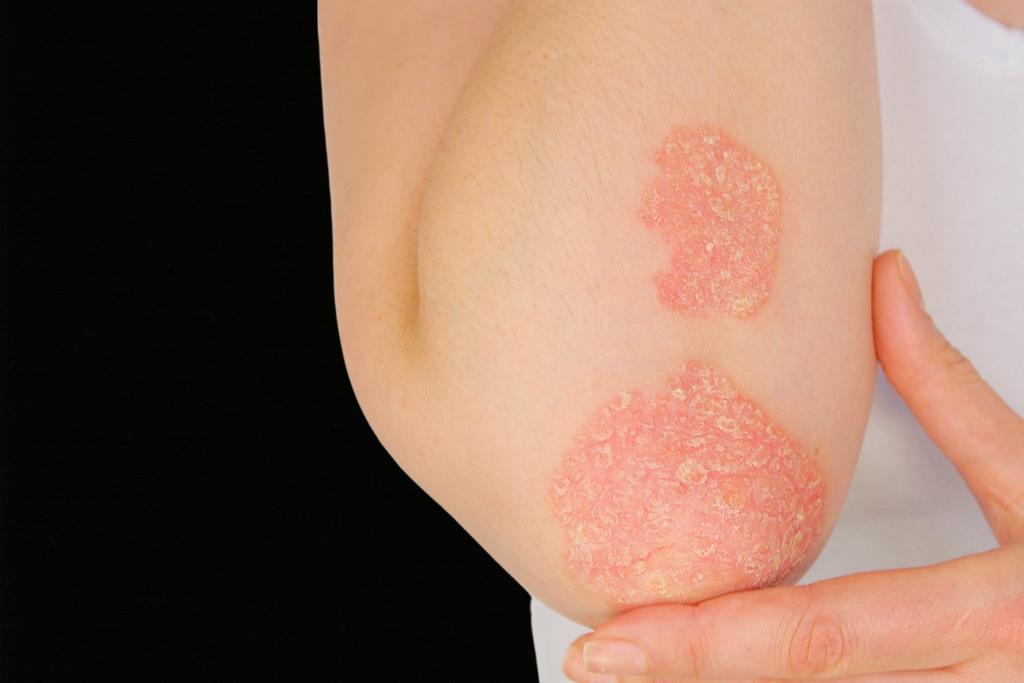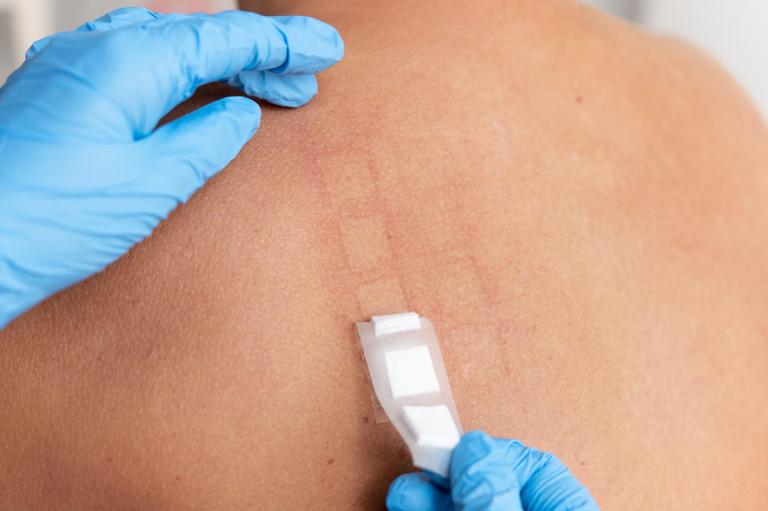Psoriasis is a common, chronic skin condition characterised by scaly patches that can appear on various parts of the body. It often runs in families and may cause discomfort and impact self-confidence.
Fortunately, effective treatments are available to help manage symptoms.

Types of Psoriasis:
Plaque Psoriasis (Psoriasis Vulgaris)
- Most common form
- Causes raised, red patches covered with silvery-white scales
- Often appears on the scalp, elbows, knees, and lower back
Guttate Psoriasis
- Appears as small, drop-shaped lesions
- Often triggered by infections (like strep throat)
- Common in children and young adults
Inverse Psoriasis (Flexural Psoriasis)
- Found in skin folds (e.g., armpits, groin, under breasts)
- Red, shiny, smooth patches without scales
- Can be aggravated by friction and sweating
Pustular Psoriasis
- Characterized by white pustules (blisters of noninfectious pus) surrounded by red skin
- Can be localized (e.g., on hands and feet) or generalized
Nail Psoriasis
- Affects fingernails and toenails
- Causes pitting, abnormal nail growth, and discoloration
Psoriatic Arthritis
- Involves joint pain and swelling in addition to skin symptoms
- Can lead to permanent joint damage if untreated
How can I manage my Psoriasis?
As dermatologists, we specialise in diagnosing and managing psoriasis to help you achieve the best possible skin health and quality of life. We will work with you to develop a personalized treatment plan tailored to the type and severity of your psoriasis, your lifestyle, and your overall health. This may include recommending topical therapies, prescribing systemic medications or biologics, and offering phototherapy options. Beyond treating the skin, we monitor for related concerns such as psoriatic arthritis and potential complications. Our goal is to provide guidance, answer your questions, and help you navigate this chronic condition with confidence and care.

FAQ’S
Frequently Asked Questions


What Causes Psoriasis?
Psoriasis is caused by an overactive immune system that speeds up the life cycle of skin cells, leading to inflammation and rapid skin cell buildup. While the exact cause isn’t fully understood, it’s believed to involve a combination of genetics and environmental triggers. Common triggers include stress, infections (like strep throat), skin injuries, certain medications, and smoking. Having a family history of psoriasis also increases your risk.
Will I get psoriatic arthritis?
Not everyone with psoriasis will develop psoriatic arthritis. However, about 1 in 3 people with psoriasis may eventually develop this condition. It typically causes joint pain, stiffness, and swelling, and can affect any joint in the body.
If you have psoriasis and begin to notice joint pain, morning stiffness, swelling, or changes in your nails, it’s important to talk to your doctor or dermatologist early. Early diagnosis and treatment can help prevent joint damage and improve long-term outcomes.
Can diet and lifestyle changes help manage psoriasis?
Yes. Healthy eating, stress reduction, quitting smoking, limiting alcohol, and maintaining a healthy weight can help reduce flare-ups. These changes can also lower cardiovascular risk factors, which is important, as people with psoriasis have a higher chance of developing heart disease and related conditions.
Can psoriasis be cured?
Psoriasis cannot be cured, but it can be effectively managed with a variety of treatments. The choice of treatment depends on the severity and type of psoriasis, as well as individual response. Options include:
-
Topical treatments (creams and ointments)
-
Phototherapy (light therapy)
-
Oral medications
-
Biologic injections (targeted immune-modulating drugs)
With the right treatment plan, many people achieve significant relief from symptoms and long-term control of the condition.





